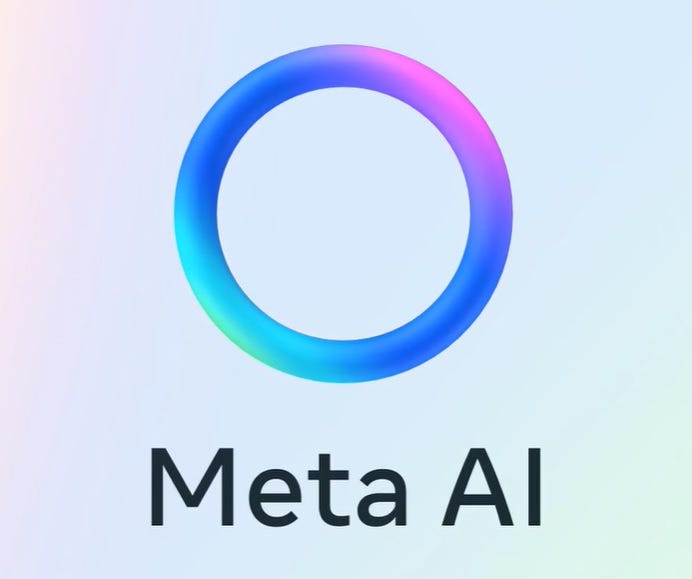In the ever-evolving digital landscape, Meta is making a bold push into the AI-powered search engine space.
Meta’s strategic pivot not only marks its intent to lessen its dependence on industry titans like Google and Microsoft but also positions it within a competitive field where the balance between content access and creator rights has become a focal point.
The development of Meta’s in-house AI search tool, backed by strategic content partnerships, is set to reshape how users interact with search technology across its platforms.
The State of AI Search and Meta’s Strategy
Currently, Meta relies on external search engines, namely Google Search and Microsoft’s Bing, to provide real-time information across its apps, such as Facebook, Instagram, WhatsApp, and Messenger. However, in a bid for greater autonomy and control over data, Meta has been quietly constructing a proprietary search engine for over eight months. This project includes a dedicated web crawler designed to source and index information, similar to the tools used by OpenAI and other tech leaders.
Meta’s strategic move aligns with industry trends where companies seek to create closed ecosystems for their services, ensuring they can adapt without relying on potentially volatile third-party arrangements. This trend is exemplified by Apple’s development of its own search tools and OpenAI’s recent announcement of SearchGPT, an AI-powered search platform.
Partnerships in the AI Race: Learning from News Corp and OpenAI
One of the biggest challenges facing AI-driven search engines is balancing innovation with respect for content ownership. The recent partnership between News Corp and OpenAI provides a prime example of how this balance can be achieved.
Through this multi-year deal, OpenAI has secured access to News Corp’s extensive archive of high-quality content from publications such as The Wall Street Journal, The Times, and The Australian. In return, News Corp will be compensated and will contribute journalistic expertise to ensure OpenAI upholds rigorous reporting standards.
This agreement, described by News Corp’s CEO Robert Thomson as a move that “sets new standards for veracity, for virtue and for value,” underscores the importance of mutually beneficial relationships between tech companies and content providers. It signals a shift towards more principled collaborations where AI leverages established journalism to improve content quality, while publishers gain a new revenue stream and influence over how their content is presented in AI platforms.
Meta’s Approach: The Reuters Deal and Beyond
In a similar vein, Meta’s recent partnership with Reuters is designed to bolster the integrity of its AI search output. By incorporating Reuters’ real-time news articles, Meta aims to enhance its AI’s ability to provide reliable, fact-based summaries in response to user queries. While the financial details of this multi-year arrangement remain undisclosed, the partnership marks a significant step in how Meta approaches content acquisition.
The move, following criticism over misinformation and disputes about revenue-sharing models, reflects a commitment to higher content standards and improved user trust. It also positions Meta to navigate the challenges faced by other AI firms, such as OpenAI’s legal issues stemming from web-scraping practices.
Challenges on the Horizon: Copyright and Ethical Data Use
The integration of licensed content is crucial for AI search engines, but it does not eliminate challenges. Scraping and indexing publicly available web data continues to raise questions about copyright compliance and fair compensation for publishers. OpenAI’s past experience, including legal actions from major media companies like News Corp prior to their deal, exemplifies the pushback that tech giants can face.
Meta has taken preliminary steps to avoid such pitfalls by securing agreements with reputable news sources, starting with Reuters. However, as Meta’s web crawler continues to index data from various sites, it must remain vigilant to prevent conflicts similar to those encountered by OpenAI and others who faced backlash for disregarding the robots.txt exclusion protocol.
Meta’s move comes as other major players are bolstering their own offerings. Google, for instance, is embedding its Gemini AI into its core products, aiming for a seamless, conversational search experience. Meanwhile, Microsoft’s partnership with OpenAI has given Bing an edge, transforming it into a more powerful, AI-supported search tool.
Implications for Users and the Future of Search
As Meta develops its AI search engine, the user experience will be critical to its adoption. The seamless integration across widely-used apps could make it an attractive alternative to traditional search engines. However, there are user concerns to address, particularly regarding intrusive AI features that cannot be easily disabled. Ensuring these tools enhance rather than detract from the user experience will be key to Meta’s success.
Meta’s venture into proprietary AI search, supported by trusted news partnerships, represents a significant step in the future of digital interaction. If managed thoughtfully, this shift could position Meta not only as a social media giant but as a major player in AI-driven information access. The landscape Meta is entering is defined by partnerships, legal frameworks, and user expectations, all factors that will shape the effectiveness and acceptance of its search engine efforts.
In this evolving field, the lessons from OpenAI’s partnership with News Corp may prove invaluable. By aligning technology with the standards of world-class journalism, Meta has an opportunity to not just participate in but potentially lead the next era of AI-driven search.




RECOMMENDED FOR YOU
OpenAI Begins Testing Ads Inside ChatGPT
For the past two years, marketers have treated ChatGPT…
For the past two years, marketers have treated ChatGPT…
Google Rebuilds Checkout For AI Shopping
Agentic shopping has moved from theory to reality, and…
Agentic shopping has moved from theory to reality, and…
LinkedIn Reveals Jobs On The Rise 2026
LinkedIn has released its latest Jobs on the Rise…
LinkedIn has released its latest Jobs on the Rise…